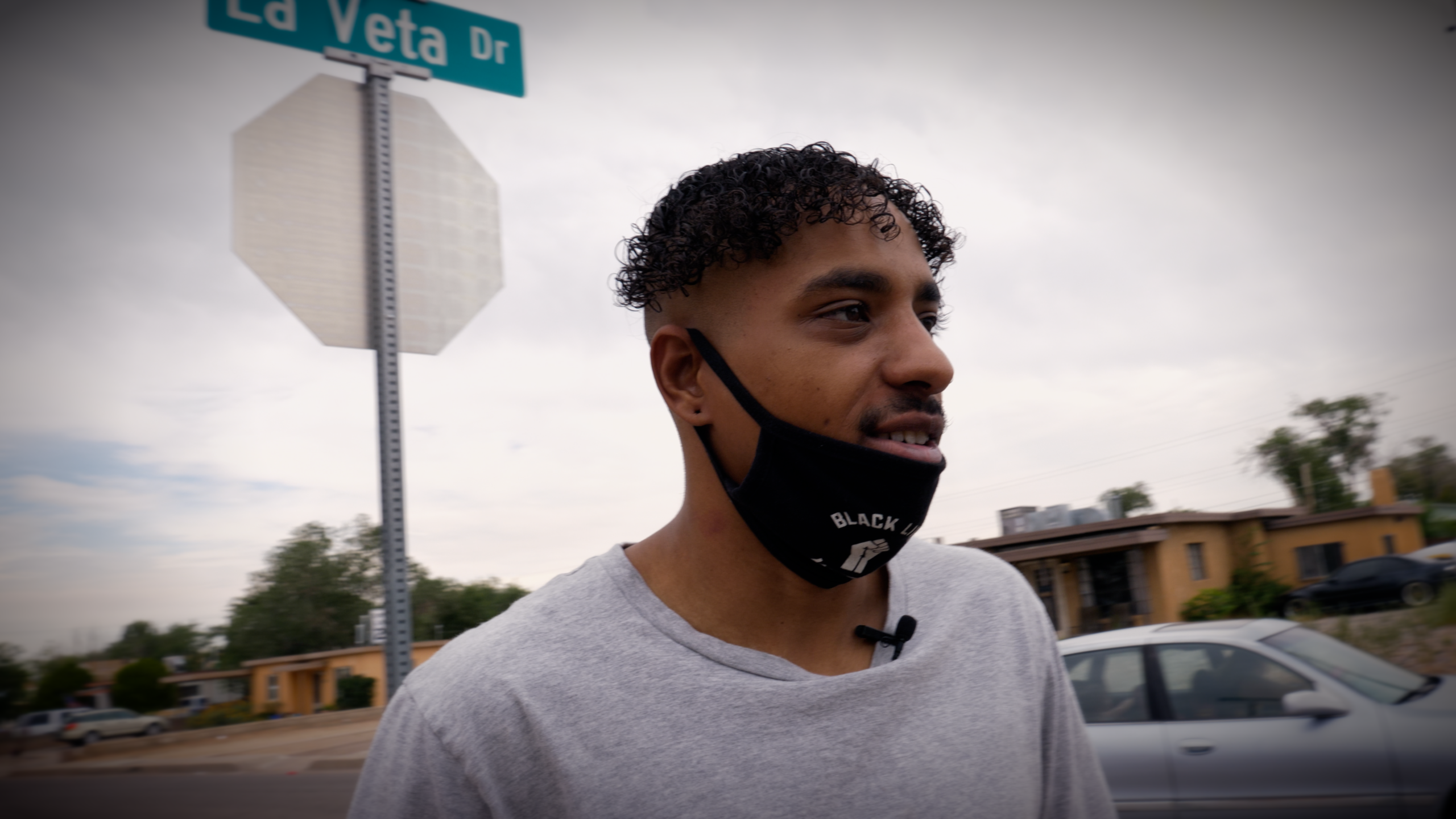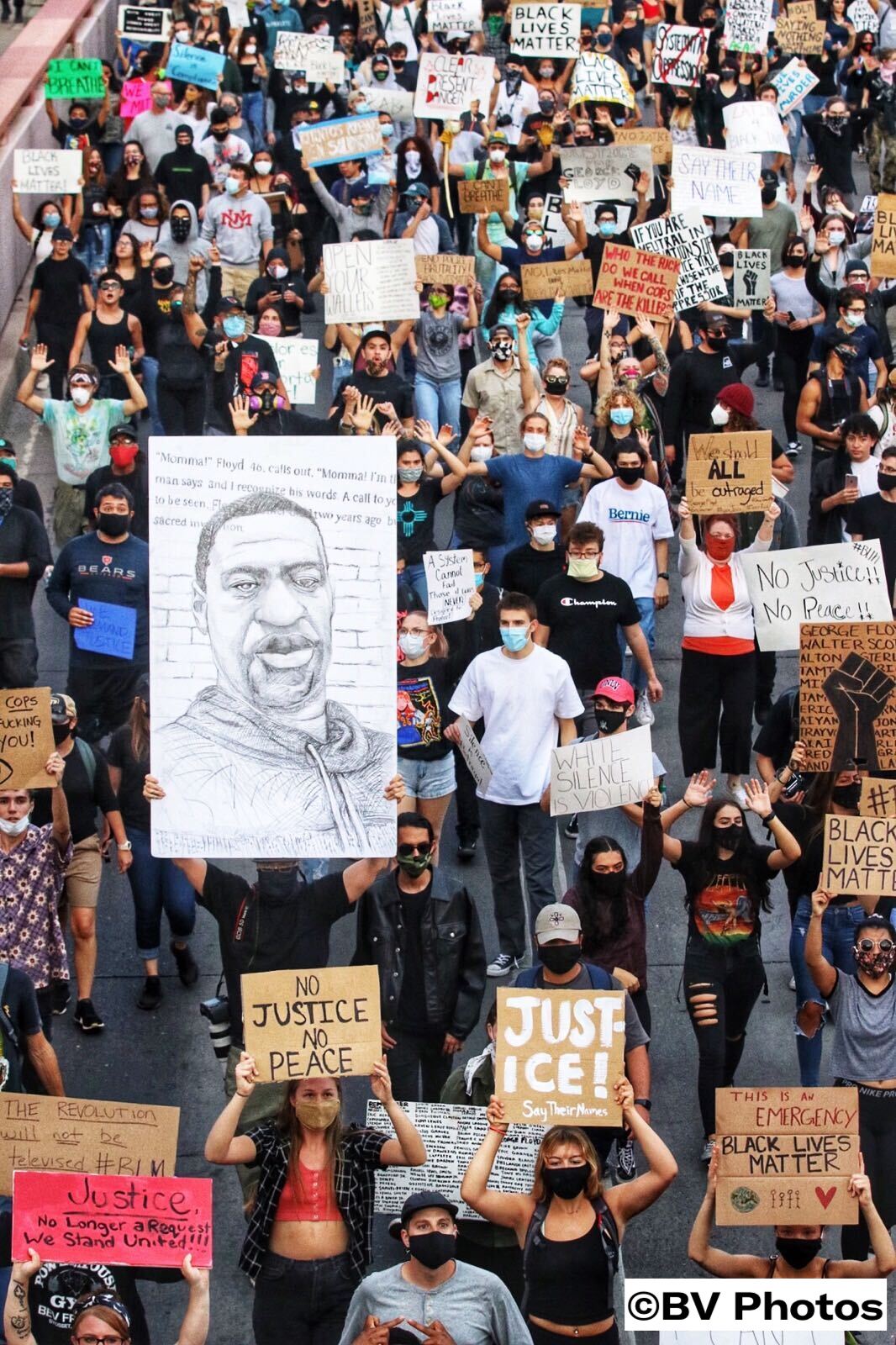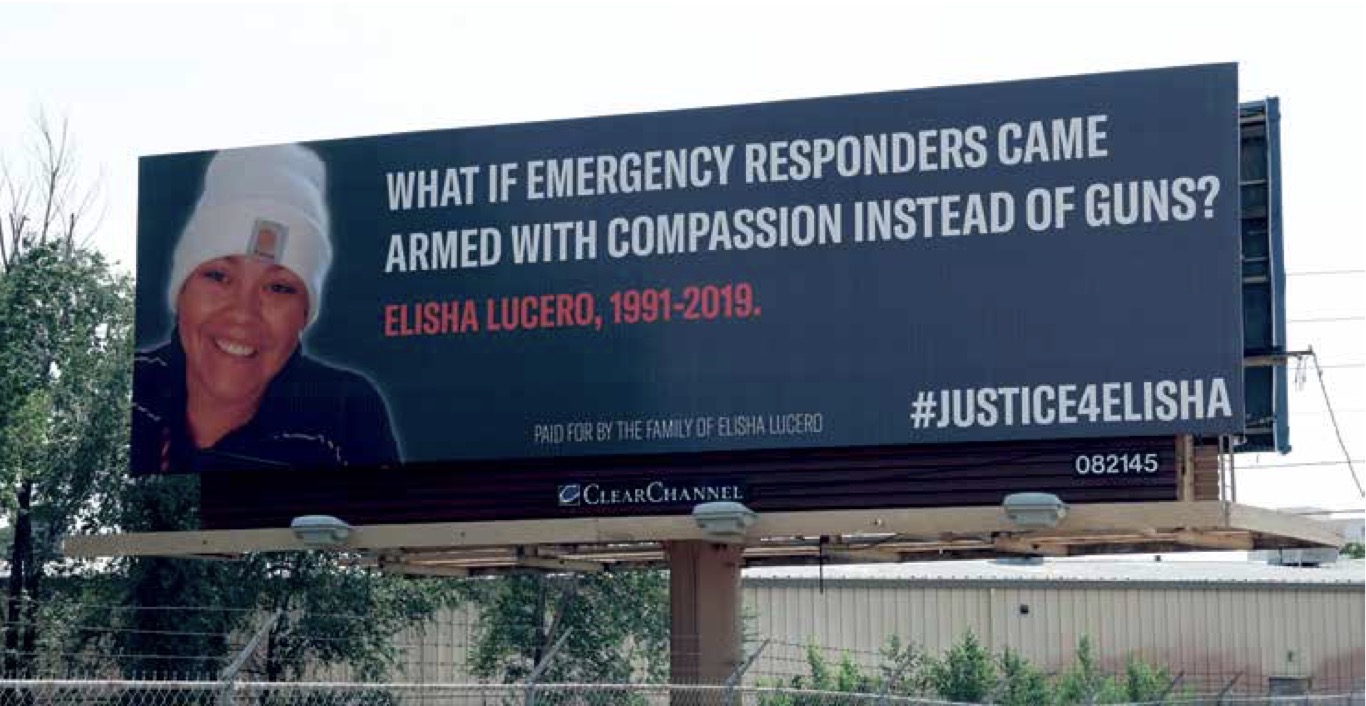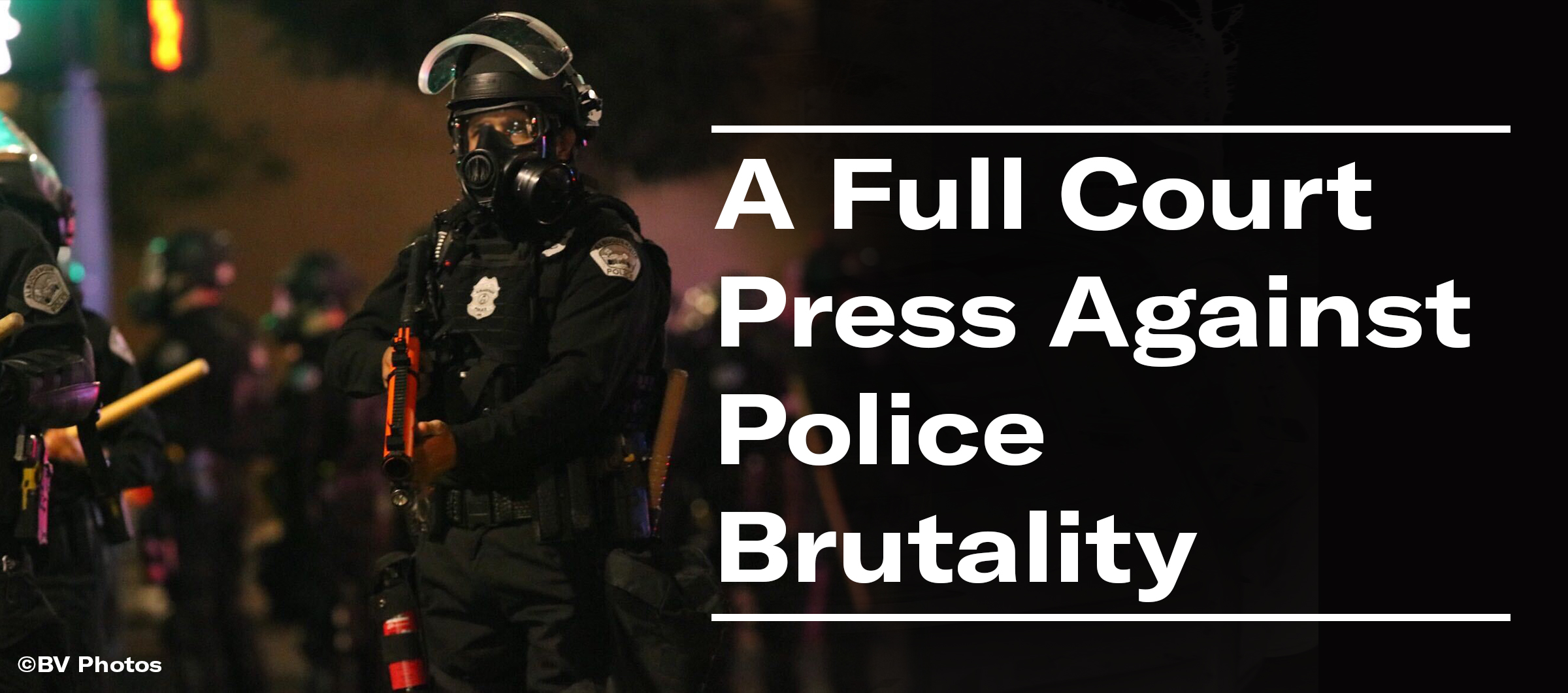Police brutality is not new, nor is systemic racism in policing. Police forces in the United States were used to catch runaway slaves and later to enact a campaign of terror against Black people during the Reconstruction and Jim Crow eras. Police were employed to brutally suppress striking factory and farm workers in the 20th century. Police were used to violently disperse protesters during the Civil Rights and Anti-War movements. Police are the front line soldiers in the ongoing “War on Drugs” that has led to the over policing of communities of color, mass incarceration, and the highest rate of officer-involved shootings in the developed world.
What has changed is the technology that makes police brutality and systemic racism much more visible, especially to those of us for whom police brutality and racist policing is not a lived reality and daily existential threat. The images of state troopers viciously beating civil rights protesters in 1963 shocked the country so deeply that congress passed the Civil Rights Act the following year. The beating of Rodney King in 1991 by four police officers, captured by an early handheld video camera, led to a citywide uprising in Los Angeles and nationwide conversation about police brutality and racism. Cellphone footage of a NYPD police officer choking Eric Garner, a Black man accused of selling loose cigarettes, to death in 2014 helped spark the Black Lives Matter movement.
"What has changed is the technology that makes police brutality and systemic racism much more visible..."
Today, practically every person in the country carries a high definition video camera in their pocket and has the ability to share footage with the entire world in seconds. Police brutality, especially against communities of color, has become impossible to ignore. On May 25th, when white Minneapolis police officer Derek Chauvin was filmed slowly murdering George Floyd, an unarmed Black man accused of passing a fake twenty dollar bill, by kneeling on his neck for over eight minutes as he begged for air, it outraged the entire nation and spurred millions to take to the streets in protest.
We stand at an inflection point, a moment where the wider public is waking up to the injustice, violence, and racism that remain embedded in our systems of policing. The people demand change.
The ACLU of New Mexico has fought against police brutality and racial discrimination since its founding nearly 60 years ago and we’re throwing our full weight behind the movement at this pivotal moment. Our affiliate is conducting a full court press, fighting in the courts, in the legislature, and in the streets for the change New Mexico so badly needs.
In the Courts
Though we pride ourselves on our diversity, New Mexico is far from immune to the violent and discriminatory police practices that have sparked protests both nationwide and here in our state. In July, the ACLU of New Mexico filed a lawsuit on behalf of D’Andre Ravenel, a 23-year-old Black man who was arrested by a New Mexico State Police officer for filming a joint FBI-police raid from a street corner nearby to his home.
After New Mexico State Police and the FBI descended on a house a few doors down from his own, D’Andre began recording the raid from a safe distance. Noticing him recording, one of the officers approached D’Andre and demanded to see his identification. D’Andre, who was engaging in constitutionally protected activity, told the officer that he did not have his ID on him. The officer criminally charged D’Andre with “interfering with an investigation” and arrested him. While he was in handcuffs, an FBI agent who was participating in the raid illegally seized his cellphone and refused D’Andre when he asked to speak with his attorney. D’Andre spent four days in jail for doing nothing more than filming the police while Black.

“I am always fearful when interacting with law enforcement because I know that the color of my skin makes me a target,” said Ravenel. “I asserted my rights anyway because it’s more important than ever in this moment to hold officers who abuse their power accountable.”
"I know that the color of my skin makes me a target. I asserted my rights anyway because it’s more important than ever in this moment to hold officers who abuse their power accountable."
Ravenel’s lawsuit is only one of several involving racial discrimination or excessive force this past year. Last fall, the ACLU of New Mexico filed a lawsuit against the Bernalillo County Sheriff’s Office (BCSO) on behalf of the family of Elisha Lucero, a Hispanic woman suffering from mental health issues following brain surgery, who was shot 21 times by deputies. This spring, BCSO settled the lawsuit for a record four million dollars.
The ACLU of New Mexico settled a second suit against BCSO in February that alleged three separate incidents of racial profiling against an African-American motorist who was working in the area on assignment as a federal agent, and this spring, the ACLU of New Mexico filed a lawsuit on behalf of a man from Acoma Pueblo, who was wrongfully detained and brutalized by a NewMexico State Police officer after he called 911 when he observed a single-car accident near the pueblo.
In the Legislature
Last year during the 60-day legislative session, the ACLU of New Mexico was instrumental in the passage of a raft of groundbreaking legislation reforming New Mexico’s criminal legal system. That package of legislation included reform of solitary confinement in New Mexico’s jails and prisons, criminal record expungement, a bill to reduce employment discrimination against the formerly incarcerated, decriminalization of marijuana possession, and other reforms.
"People were outraged, marching in the streets, and demanding change.”
“Following the 2019 session, we believed that it would be another two years before we had a real chance to pass new reforms through the legislature,” said ACLU of New Mexico Director of Public Policy Steven Robert Allen. “But swiftly evolving attitudes concerning police brutality following the death of George Floyd gave a new urgency to reform efforts. People were outraged, marching in the streets, and demanding change.”
When the legislature met in June for a special session to shore up the state budget in the wake of the COVID-19 economic crash, the ACLU of New Mexico coordinated with community partners and advocates to channel public outrage into passing Senate Bill 8, a law that would require New Mexico law enforcement agencies to equip their officers with bodyworn cameras. The bill moved quickly through both houses, and was signed into law by Governor Michelle Lujan Grisham in July.
The new law will have an immediate impact on the transparency and accountability of law enforcement in our state.
“It was a real testament to the adaptability and innovation of our digital and organizing teams,” said Allen. “Organizing and mobilizing people in the middle of a global pandemic in a special session meant we had to sort of jump and build the airplane on the way down.”
The new law will have an immediate impact on the transparency and accountability of law enforcement in our state. Sheriff Manny Gonzales, head of BCSO, the largest Sheriff’s department in the state, has steadfastly refused to equip his deputies with body-worn cameras for years. This legislation will finally force him and other holdouts across the state to join the majority of law enforcement agencies nationwide who use this important technology.
In the Streets
Much of the driving energy of the movement to reform police practices in America has come from the hundreds of demonstrations in cities and towns across the United States, and even in other countries across the world. People of all ages, races, ethnicities, and backgrounds have taken to the streets to support Black lives in a series of ongoing protests that constitute the largest protest movement in U.S. history. The backlash from local police departments and federal police agencies under the control of the Trump administration has been swift and brutal.

Videos from Black Lives Matter protests across the country show officers in riot gear tear gassing predominately peaceful protesters, clubbing unarmed protesters, shooting people with rubber bullets, and conducting mass arrests. President Trump even ordered the violent dispersal of a peaceful protest in Washington D.C. so he could stage a photo op with a Bible outside the White House. In Portland, where protests have been continuous for the past two months, a mashup of paramilitary units from the Department of Homeland Security were deployed to downtown Portland in full battle dress where they escalated tensions by attacking peaceful protesters and abducting people off the streets into unmarked vans.
“It’s a very precarious moment for the First Amendment,” said ACLU of New Mexico Legal Director Leon Howard. “We’re at a place where the American people feel they have no choice but to rise up in protest, and we have an administration that wants to suppress their voices, violently if need be.”
To help protesters better navigate confrontations with law enforcement, the ACLU of New Mexico communications department collaborated with the legal team to produce a ‘know your rights’ video explaining how to safely exercise your rights at a protest. The video, which has now been viewed nearly 12,000 times, helps protesters understand how to safely record police interactions at protests, how to protect private data, how to respond if stopped by an officer at a protest, and what to do ifyou believe your rights have been violated.
Above the Streets
This July, we marked the one-year anniversary of Elisha Lucero’s death at the hands of BCSO deputies by collaborating with Lucero’s family to launch a seven-week long billboard campaign in Albuquerque. Together, we honored her memory and promoted reforms that will help prevent other families from losing loved ones to police violence.

“We wanted to send a message that this is not how things have to be,” said Elaine Maestas, Elisha Lucero’s sister. “Our community should never have to fear that calling emergency services will result in the death of a loved one. Not every problem requires an armed response. We must dramatically reimagine the role of law enforcement in our lives because the current system is killing our families.”
In the Future
Although we are experiencing a seismic shift in the attitudes and awareness surrounding police brutality and systemic racism, bringing about the needed changes has been and will continue to be a long term project. In addition to our ongoing fight for justice in the courts, we plan to advocate for two major pieces of legislation during the 2021 session that would make sweeping reforms to our state’s criminal legal system. We plan to support a statewide use of force bill that would rein in deadly use of force by officers, prevent abusive officers from being rehired, and implement a range of other reforms aimed at decoupling violence from police work.
We know nothing is impossible when We the People rise up and stand together for the change we believe in.
We also intend to promote a Civil Rights Act for the state of New Mexico that would end qualified immunity for law enforcement officers, which provides near universal protection against liability for police officers, even those who break the law intentionally. This will go a long way towards putting an end to the culture of impunity that infects many law enforcement departments and ensure that officers who abuse civilians and violate rights will finally face consequences for wrongdoing.
The ACLU of New Mexico will continue to fight on every front for a future where people no longer fear that a routine encounter with law enforcement will be fatal or that they will be treated unjustly because of the color of their skin. We have our work cut out for us, but we know nothing is impossible when We the People rise up and stand together for the change we believe in.

